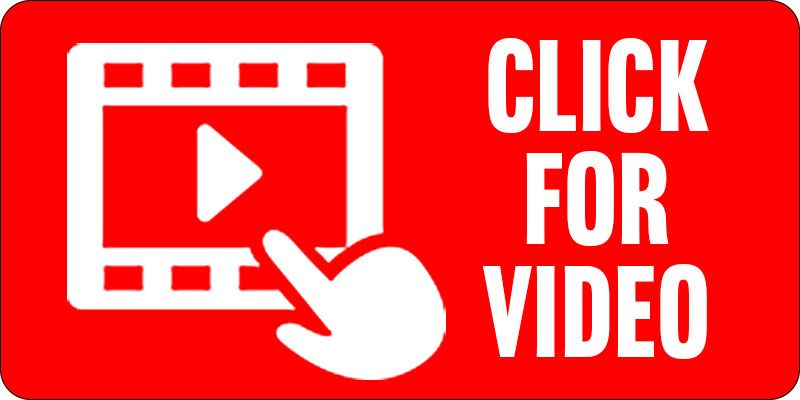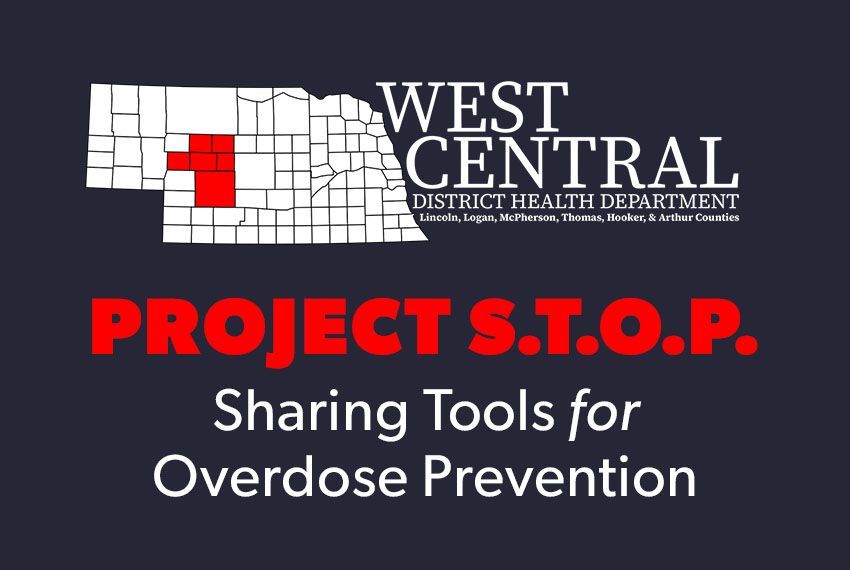
Haga clic para leer esta página en español.
Together, we can stop overdose deaths. Learn how what to do if you suspect someone is overdosing, where you can find Narcan and recovery services, and how to better be prepared to prevent an overdose.
WHAT TO DO IN AN OVERDOSE
If you think a person has overdosed on drugs, you should respond right away. First, call 911. Second, give Narcan if it's available. Third, wait with the person and continue to help until emergency services arrive.
Any drug or intoxicating substance (including alcohol, over-the-counter medications, and prescription drugs) can cause an overdose if too much is taken within a certain period of time. It may not be possible to quickly determine what a person has taken to cause an overdose, and ANY street drug can potentially contain fentanyl, a highly potent opioid known to cause overdose and death even in very small amounts.
SIGNS OF OPIOID OVERDOSE:
- "Nodding out" or loss of consciousness; not responding to shaking or shouting
- Small, constricted “pinpoint pupils”
- Slow, shallow breathing
- Choking or gurgling sounds
- Limp body
- Pale, blue, or cold skin or lips
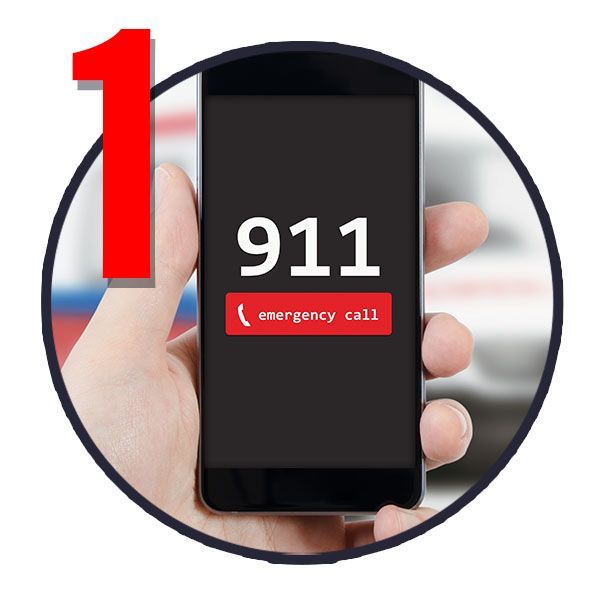
1. CALL 911
If you think you or someone else has overdosed, call 911 right away — don't wait. You cannot be prosecuted for drug-related offenses if you call emergency services during a possible overdose and stay on scene until help arrives. You can make the call yourself or ask a nearby person to call for you. If you're alone, put your phone on speaker so that you can communicate with the 911 operator while providing additional aid.
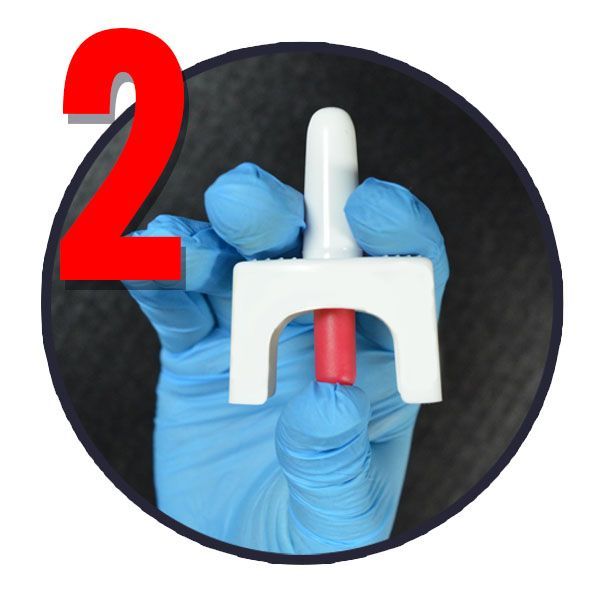
2. GIVE NARCAN
Narcan (naloxone nasal spray) is a medication that blocks the effect of opioids and can stop an opioid overdose. It CANNOT harm a person who has not taken opioids. If you believe someone is overdosing, you should administer Narcan even if you aren't sure if what they have taken includes opioids.
If Narcan (naloxone nasal spray) is available, take it out of the box and peel open the packaging. Do not remove the canister until ready to use, and do not push the plunger to "test" it.
Hold the Narcan canister with your thumb on the bottom of the red plunger and your first and middle fingers on either side of the nozzle. Tilt the person’s head back and provide support under the neck with your hand. Gently push the tip of the nozzle into one nostril, until your fingers on either side of the nozzle are against the bottom of the person’s nose. Press the plunger firmly. Remove the canister from the nose after giving the dose.
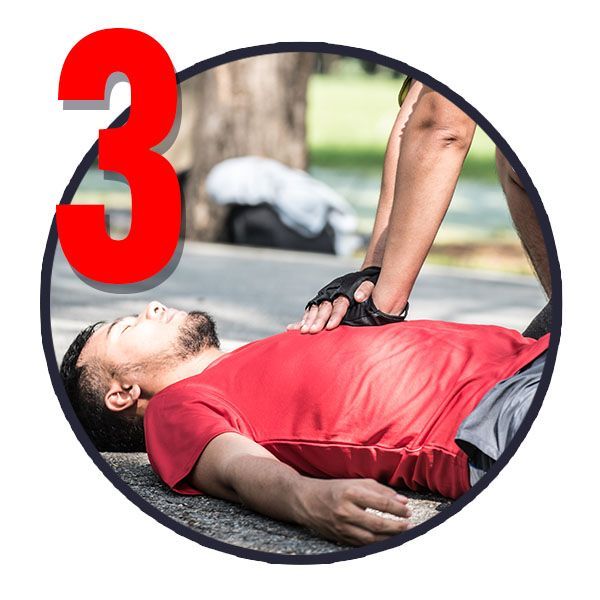
3. STAY & HELP
Remain close by and continue to help until emergency services arrive. If the person:
- Does not respond after 2 minutes, administer another dose of Narcan, if you have it, into the other nostril.
- Does not show signs of life, give CPR or chest compressions if you know how. Click here for a short video on how to perform chest compressions.
- Is breathing but not conscious, roll them onto their side into the "recovery position," with their top knee and arm bent in front of them. Click for a short video on how to roll someone into the recovery position.
If the person wakes up, tell them what happened. Let them know they may have overdosed and you gave them Narcan (if you did). Encourage them to stay put until more help arrives.
Remember, Nebraska's Good Samaritan laws protect both you and the person suffering an overdose, so long as you call 911 and remain on-scene to assist until emergency services take over.
LOCAL RESOURCES
NARCAN: What it is and where to get it
Opioid overdoses can happen anywhere, to anyone. Narcan (naloxone nasal spray) is a life-saving medication that blocks the effects of opioids in the event of an overdose. Anyone can obtain, carry, and/or use Narcan, and it is available without a prescription from most pharmacies. You can safely store it in your home and carry it in your vehicle. Narcan cannot get a someone high, or harm a person who hasn't used opioids.
Any Nebraska resident can obtain Narcan (naloxone nasal spray) for FREE at a participating pharmacy, including two pharmacies in our region.
GET FREE NARCAN FROM:
U-Save Pharmacy
211 West Leota, North Platte
Westfield Pharmacy
1845 W A Street, North Platte
Local Resources for Overdose Prevention and Substance Use Recovery
If you or a loved one is struggling with issues related to substance use, you aren't alone. Many organizations within our community can help you achieve better health and safety.
West Central District Health Department
820 S Maple, North Platte NE 69101
308-696-1201 | www.wcdhd.org
CredibleMind mental health support platform
West Central District Health Department can help coordinate and connect you with the right resources for your specific situation. Spanish-language services are available.
Region II Human Services/Heartland Counseling
110 N Bailey Ave, North Platte NE 69101
308-534-6029 | r2hs.com
Behavioral Health Crisis Response Line: 308-390-4645
Region 2 Resources Website
Region II Human Services/Heartland Counseling can help you access treatment and services to address issues related to mental health and/or substance use.
Community Connections
121 N Dewey St, North Platte, NE 69103
(308) 696-3355 | www.communityconnectionslc.org
Community Connections works to improve health and safety in the region by coordinating prevention efforts and supporting community collaboration.
MENTAL HEALTH & SUBSTANCE USE DISORDER TREATMENT SERVICES IN NORTH PLATTE
- Behavioral Health Adult & Youth Crisis Response Line: 308-390-4645
- Great Plains Behavioral Health: 308-568-7263, 601 W Leota
- Platte Valley Women’s Healthcare: 308-534-0090, 810 W Reid Suite 4
- Psychiatric Hope: 308-221-4651, 810 W Reid Suite 2
- Precise Family Care: 308-534-4438, 1021 S Cottonwood St
- Lutheran Family Services: 308-532-0587, 120 E 12th St
- Region II: 308-534-6029, 110 N Bailey Ave
- Families First Partnership: 308-221-6689, 308-520-3743, 421 S Dewey St
- Deborah's Legacy: 308-660-6792, 710 N. Poplar
LOCAL DOMESTIC VIOLENCE SUPPORT
RDAP (24 hour hotline): 308-534-3495
ADDITIONAL STATE & NATIONAL RESOURCES
Crisis Resources
IN THE EVENT OF A MEDICAL EMERGENCY, INCLUDING A POSSIBLE OVERDOSE, CALL 911.
- Poison Control Hotline: 1-800-222-1222
- Suicide & Crisis Hotline: Dial 988 on any phone or visit 988lifeline.org
- Crisis Text Line: Text HOME to 741741 or visit crisistextline.org
Mental Health & Substance Use Disorder Treatment Services
- CredibleMind:
WCDHD's partnership with the CredibleMind mental health support platform, located at wcdhd.crediblemind.com, provides community members with free, confidential, 24/7 access to expert-approved resources for mental health. —visit wcdhd.crediblemind.com
- FindTreatment.gov:
SAMHSA’s National Helpline is a free, confidential, 24/7, 365-day-a-year treatment referral and information service (in English and Spanish) for individuals and families facing mental and/or substance use disorders — call 1-800-662-HELP (4357) or visit FindTreatment.org
- Nebraska Narcotics Anonymous: Statewide meeting list
- Nebraska Alcoholics Anonymous: State hotline — call 877-AA-OF-NEB or visit www.area41.org
- Oxford House sober living organization (has residence in North Platte): www.oxfordhouse.org
- SMART Recovery: smartrecovery.org
- National Harm Reduction Coalition: harmreduction.org
Other Local & State Support Services
- Veteran Employment Services through the Nebraska Department of Labor, local office: 600 E Francis Street, Ste. 9, North Platte; call 308-535-8320, visit their website
- Medicaid: Call 855-632-7633
- Nebraska iServe (help with food, electricity, healthcare): Visit iserve.nebraska.gov
LEARN MORE, BE PREPARED:
Additional Tools For Overdose Prevention & Emergency Response
Overdoses and other substance use issues can impact anyone. Two-thirds of Americans responding to a
2023 Kaiser Family Foundation poll said that either they or a family member have at some point had a substance use disorder, experienced homelessness due to substance use, or experienced a drug overdose leading to an emergency room visit, hospitalization, or death. In the same poll, three in 10 U.S. adults (29%) reported that they or someone in their family have been addicted to opioids, including prescription painkillers and illegal opioids like heroin.
What is an overdose?
Overdose happens when someone consumes too much of a substance, or combination of substances, leading to a dangerous and potentially deadly physiological reaction. Any drug or intoxicant (including alcohol, over-the-counter medications, and prescription drugs) can cause an overdose if too much is taken within a certain period of time, or if substances are mixed in a way that makes them more dangerous.
Overdoses don't just occur when people deliberately use drugs in excess — they can be caused by mistakes when taking prescribed medication, or by consuming substances that have been contaminated or "laced" with more potent or dangerous drugs. It may not be possible for a bystander to easily determine what a person has taken to cause an overdose. If you think someone might be overdosing, even if you're not sure of the cause, you should treat the situation as an emergency.
How can I be prepared to help in the event of an overdose?
An overdose can happen anywhere, including schools, parks, stores, social gatherings, concerts, and other public places and events.
You can help prevent overdose deaths in the following ways:
- Carry Narcan, and learn how to use it. See the LOCAL RESOURCES section for a list of local pharmacies that offer Narcan for free, as well as our video on how to use Narcan.
- Become trained in how to perform basic rescue techniques, such as chest compressions and the recovery position. Contact West Central District Health Department for more information about how to find local classes and trainings, or to schedule a training for your organization.
- Store and dispose of all medicines safely and securely. Locally, Community Connections of Lincoln County offers a monthly safe drug drop-off point, held every third Saturday at Bomgaars farm store in North Platte from 11 a.m. to 1 p.m.
What are opioids?
Opioids are a class of powerful drugs capable of relieving pain by acting on special structures in the brain called opioid receptors. Opioids include prescription drugs such as hydrocodone, oxycodone, and fentanyl, as well as street drugs such as heroin.
Use of opioids can lead to physical dependence and dangerous side effects, especially when a person uses opioids in ways that haven't been prescribed by a doctor. Unsafe opioid use can lead to overdose, which causes breathing to slow down or stop — rapidly leading to a fatal lack of oxygen.
SIGNS OF OPIOID OVERDOSE:
- "Nodding out" or loss of consciousness; not responding to shaking or shouting
- Small, constricted “pinpoint pupils”
- Slow, shallow breathing
- Choking or gurgling sounds
- Limp body
- Pale, blue, or cold skin or lips




